Karsten Desario
-Founder
Karsten Desario is the founder of Kinetic Movers in York, Pennsylvania. You can often find him helping his crews accomplish the best moving services around the state of Pennsylvania and beyond.
Moving to a new home is an exciting adventure, but it can also be overwhelming. Once the moving truck pulls away, you're left with boxes upon boxes to unpack. Where do you even start? This comprehensive guide will provide efficient unpacking tips and a detailed unpacking plan to help you settle into your new home quickly and easily.
Before you dive into the unpacking process, it's essential to have a plan. A well-organized move can make unpacking significantly more manageable and more efficient.
Before you start unpacking, take a moment to visualize where you want everything to go in your new home. This will help you unpack more efficiently and avoid moving items multiple times.
When packing, clearly label your boxes with their contents and the room they belong to. This will make it easier to find what you need during the unpacking process.
The first box you should unpack is your essentials box. This box should contain everything you need for the first day or two in your new home, such as toiletries, a change of clothes, basic cooking utensils, and important documents.
Creating an essentials box is an excellent idea for various situations, such as moving to a new home, going to college, preparing for emergencies, or even setting up a vacation home. The contents of your essentials box will depend on your specific needs and circumstances, but here are some general items to consider including:
Please remember the items in your essentials box should cater to your specific needs, and it's a good idea to review and update the contents periodically to ensure everything is still relevant and in good condition.
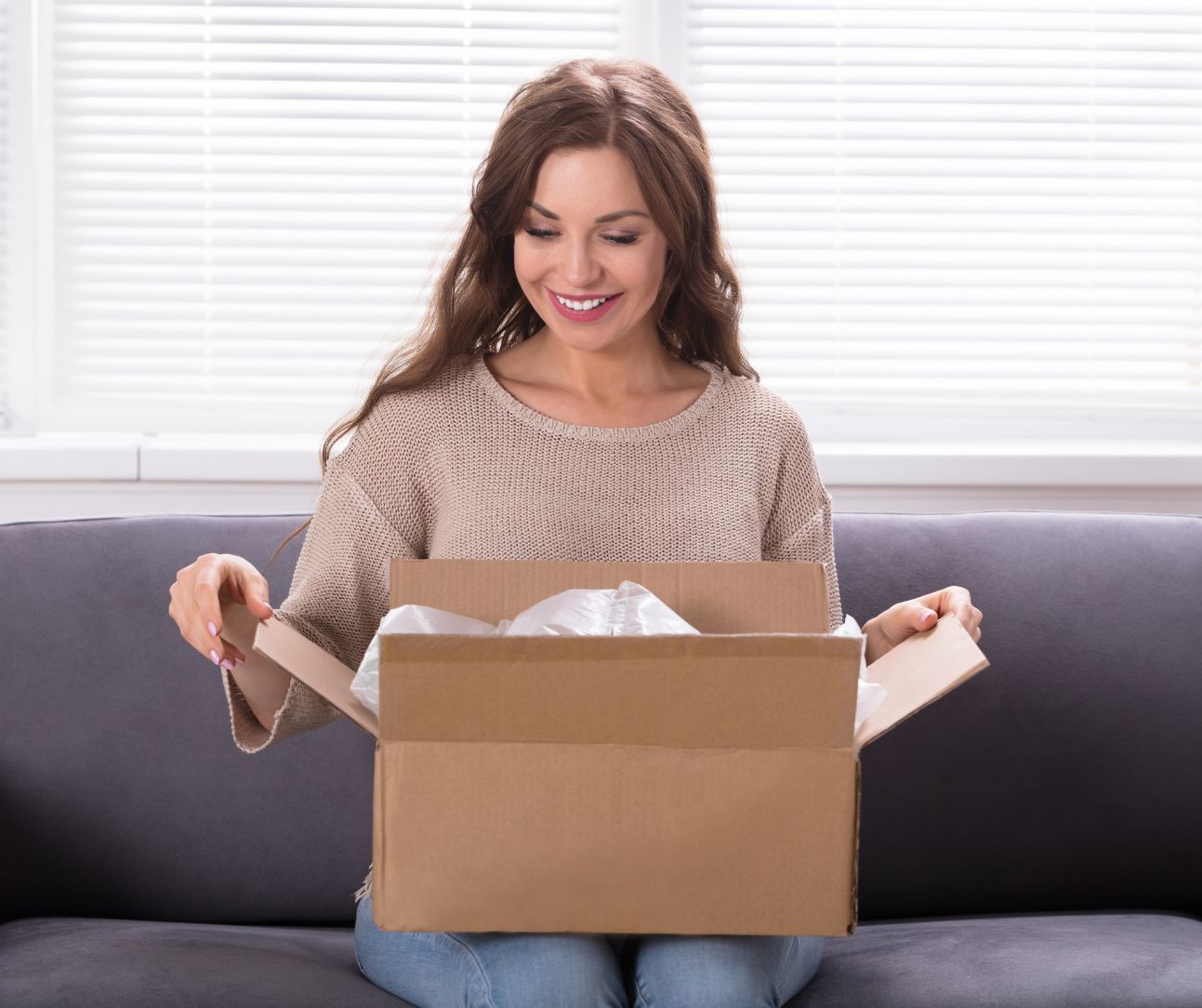
The timing of unpacking your essentials box will depend on the situation in which you created it. Here are some scenarios and guidelines for when to unpack your essentials box:
1. Moving to a New Home: If you've packed an essentials box for a move to a new home, it's a good idea to unpack it as soon as you arrive at your new place. The essentials box contains items you'll need immediately, so you won't have to dig through all your other boxes to find necessary items.
2. Emergency Preparedness: If you've created an essentials box for emergency preparedness, it's essential to keep it in a readily accessible location at all times. In an emergency, you'll easily access crucial items like first aid supplies, flashlights, and personal documents.
3. College or Vacation Home: If you've packed an essentials box for a college dorm or a vacation home, unpack it as soon as you settle into your new living space. This will ensure you have the necessary items without unpacking everything immediately.
Unpacking the essentials box should be straightforward, especially if you've labelled it clearly. Follow these steps to unpack it effectively:
1. Prioritize Safety: If you've packed any safety-related items, such as a first aid kit or flashlights, keep them within easy reach in case of emergencies.
2. Unpack Important Documents: Retrieve and organize essential documents like passports, birth certificates, and medical records. Store them in a safe and secure location, such as a file cabinet or a locked drawer.
3. Unpack Personal Care Items: Set up the bathroom with toiletries like toothbrushes, toothpaste, soap, shampoo, and towels.
4. Unpack Electronics and Chargers: If you have electronic devices and chargers in the essentials box, unpack them and set up your charging stations.
5. Unpack Clothing and Bedding: Take out the change of clothes for each family member and set up the beds with bedding, pillows, and sheets.
6. Kitchen and Food Items: If you've included basic cooking utensils or non-perishable snacks, unpack them to make your new living space functional.
7. Pet Supplies: If you have pets, unpack their essentials and set up a designated area for their needs.
8. Cleaning and Miscellaneous Items: Lastly, unpack any cleaning supplies or miscellaneous items you included in the essentials box.
Remember to take your time and prioritize items based on immediate needs. By unpacking the essentials box early on, you'll ensure a smoother transition and have the necessary items at hand when you need them the most.
Packing one room at a time can make the process feel manageable. Here's a room-by-room guide to help you unpack efficiently.
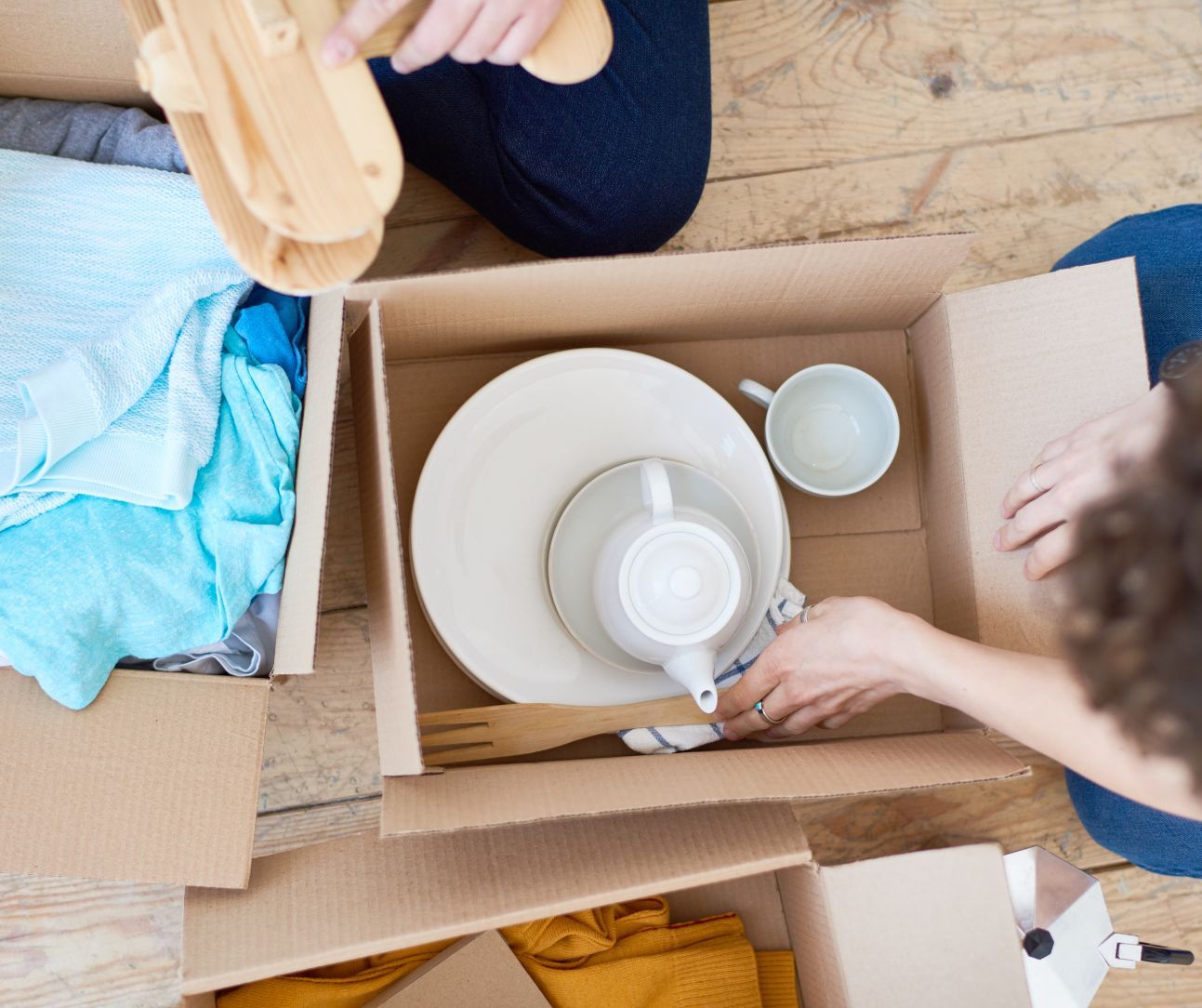
The kitchen is often considered the heart of the home, so it's an excellent place to start. Here's how to tackle the kitchen unpacking process:
1. Organizing Appliances: Start by placing large appliances like the refrigerator, stove, and dishwasher. Then, move on to smaller appliances like the microwave and toaster.
2. Setting Up Pantry and Kitchenware: Unpack your pantry items and kitchenware. Organize your pantry items by type to make it easier to find what you need. For kitchenware, consider the flow of your kitchen and place items in the most convenient cabinets and drawers.
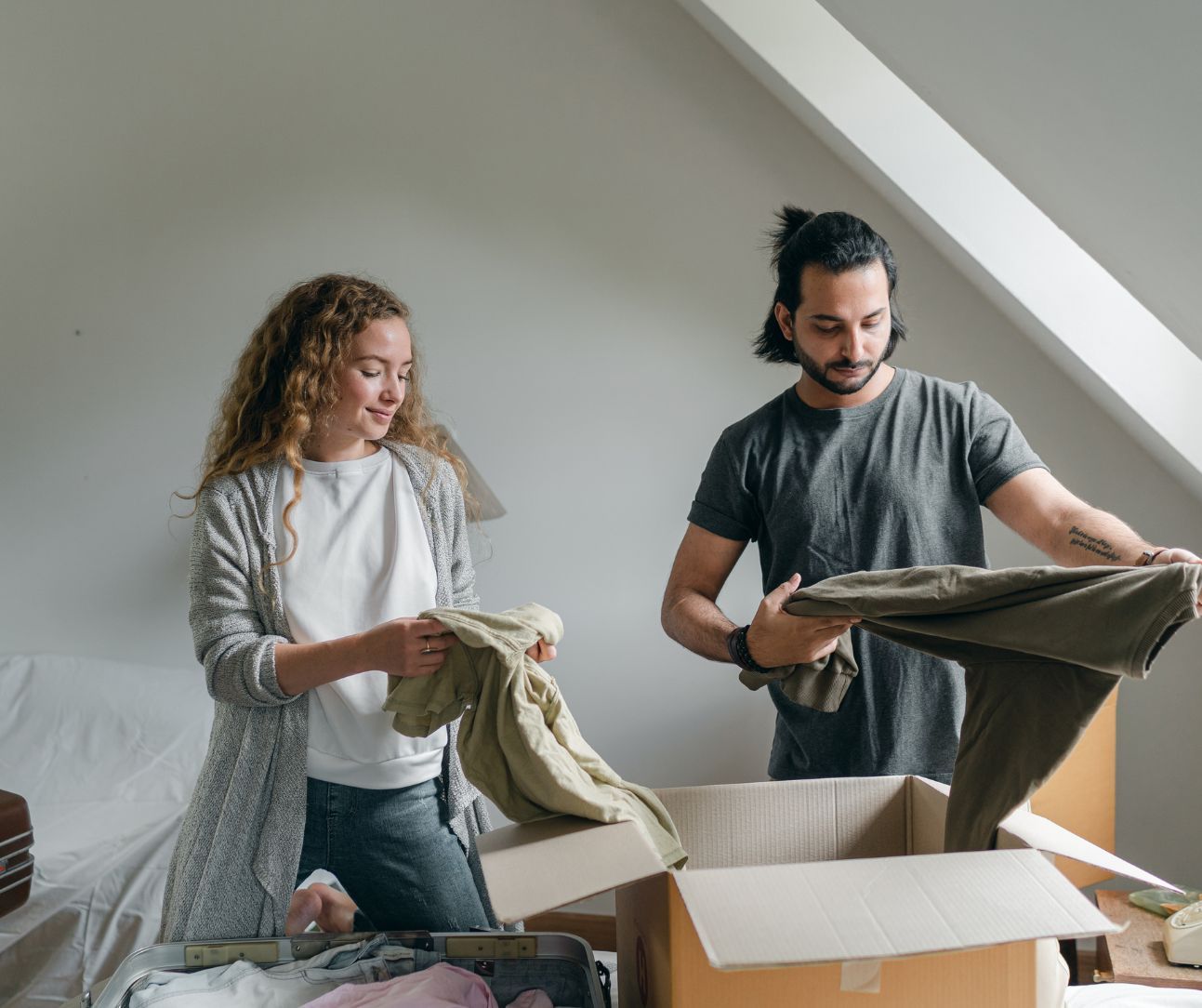
After a long day of moving, you'll want a comfortable place to sleep. Here's how to unpack your bedrooms:
1. Setting Up the Bed: Start by setting up the bed. This includes assembling the bed frame, laying the mattress, and putting on bedding.
2. Organizing Personal Items: Unpack personal items like clothes and accessories. If you pack your clothes in wardrobe boxes, you can transfer them to your new closet.
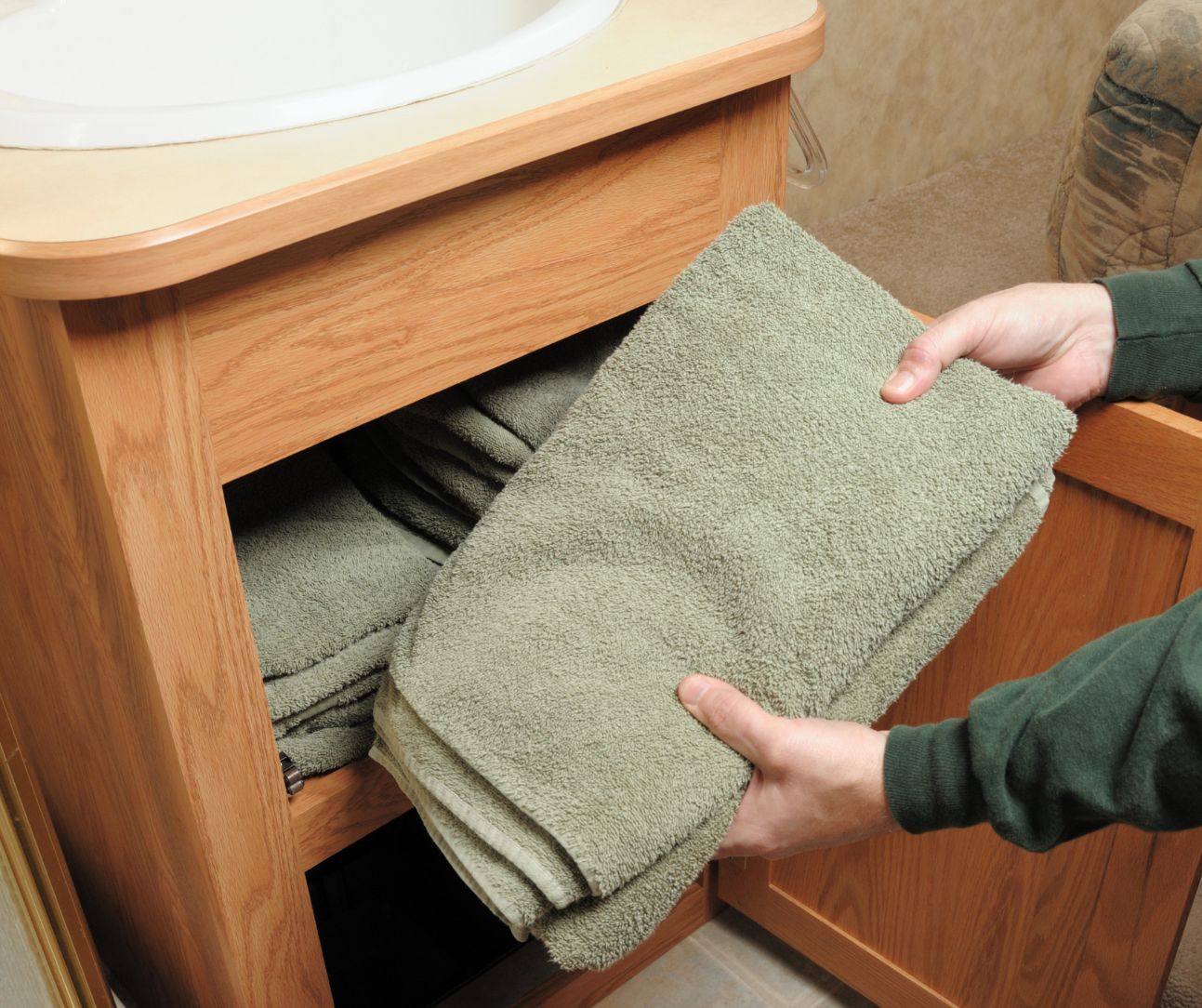
Next, move on to the bathrooms. Here's how:
1. Organizing Toiletries and Bathroom Essentials: Start by unpacking toiletries and bathroom essentials like towels, shower curtains, and bath mats. Organize your toiletries in a way that makes sense for your daily routine.
2. Safety Measures in Bathroom Setup: Make sure to place any cleaning chemicals or medicines out of reach if you have young children.
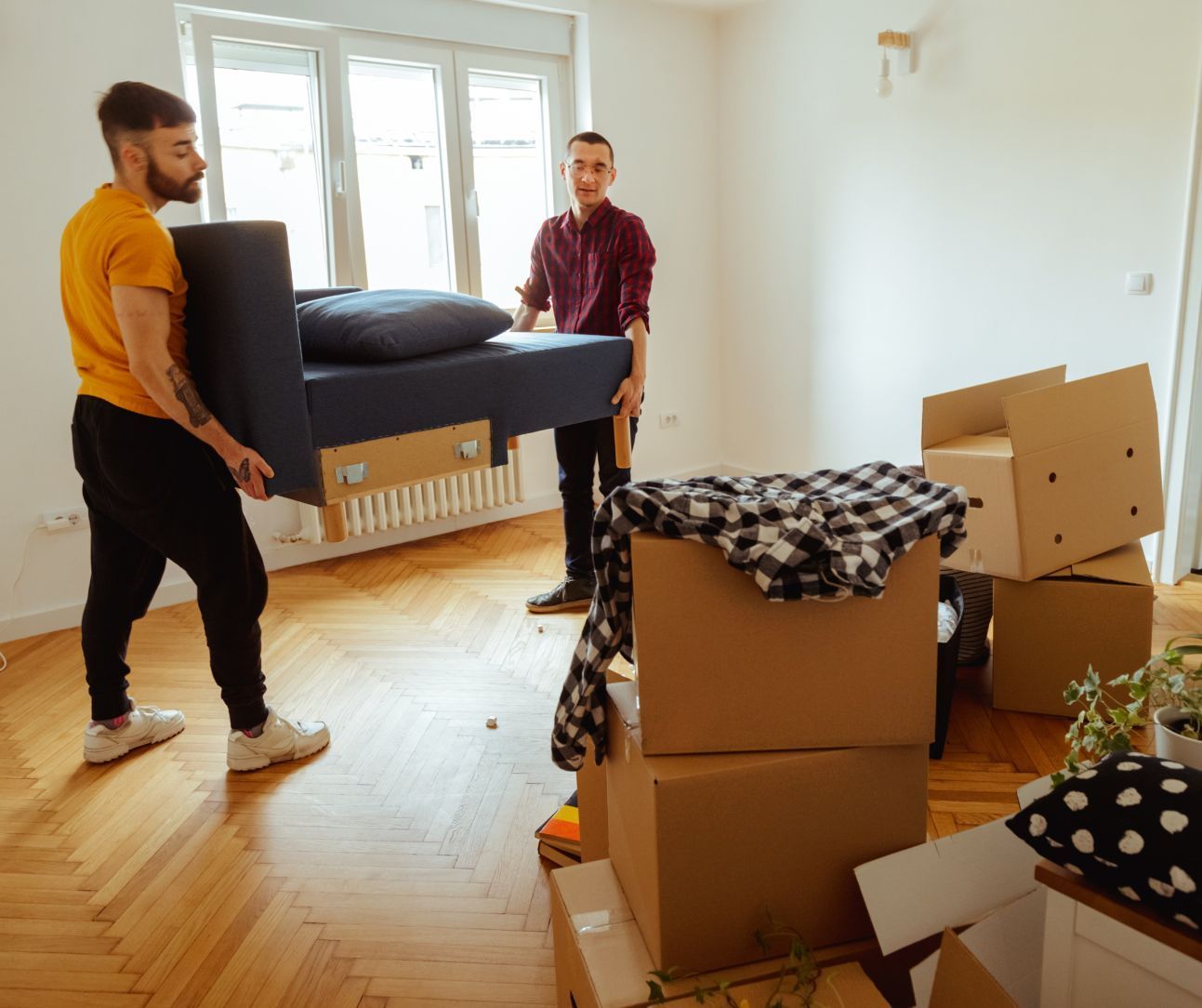
You'll relax in the living room after a long day of unpacking. Here's how to unpack your living room:
1. Arranging Furniture: Start by placing large pieces of furniture like the sofa, coffee table, and TV stand. Consider the room's flow and ensure there's plenty of space to move around.
2. Setting Up Entertainment Systems: Set up your TV and other entertainment systems. Make sure to organize and hide any cables for a clean look properly.
Once you've finished unpacking, there are a few more things to do:
- Dealing with Moving Boxes and Packing Materials: Break down your moving boxes and recycle them if possible. You can also consider selling or donating them.
- Making Your New House Feel Like Home: Now that your items are unpacked, you can start decorating your home to make it feel like your own.
Safety Checks After Unpacking: Check all appliances and systems in your new home to ensure they work correctly.
If unpacking seems too overwhelming, consider hiring professional unpacking services. These professionals can unpack your belongings quickly and efficiently, allowing you to settle into your new home faster.
Professional unpacking services are moving services offered by professional companies or relocation specialists. When people move to a new home or office, they often face the daunting task of unpacking and organizing their belongings. Hiring professional unpacking services can make the process more efficient and less stressful.
Here's how professional unpacking services typically work:
Benefits of Professional Unpacking Services:
If you are planning a move and are interested in professional unpacking services, you can contact consider contacting reputable moving companies or relocation specialists to inquire about their offerings and get quotes.

Karsten Desario
-Founder
Karsten Desario is the founder of Kinetic Movers in York, Pennsylvania. You can often find him helping his crews accomplish the best moving services around the state of Pennsylvania and beyond.

Our professional and experienced team at Kinetic Movers & Storage is dedicated to making your move as stress-free as possible.
USDOT# 3841511
MC# 1402856
PA PUC# A-8925417
Copyright © 2025 Kinetic Movers & Storage | Terms and Conditions | Privacy Policy